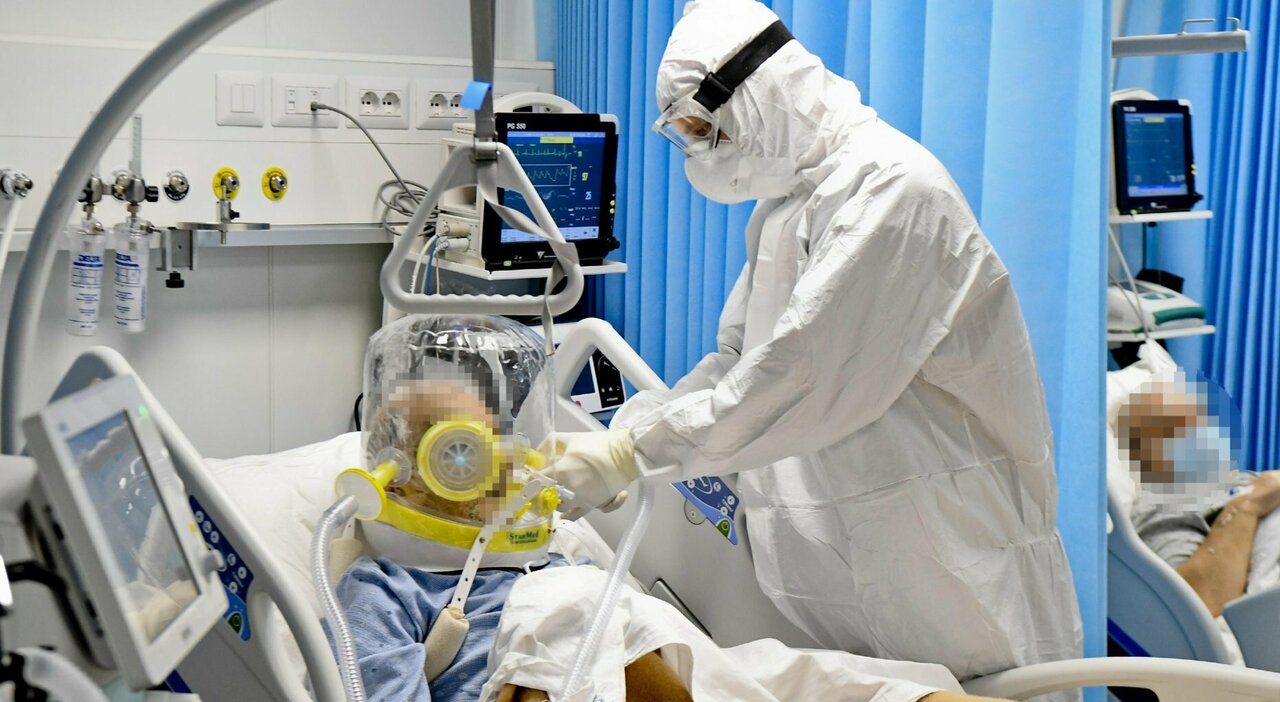Neurological, dermatological, metabolic and psychological problems. The Long Covid it manifests itself in a different way and has a greater impact, especially in psychological terms, on those who have undergone hospitalization due to the infection. Problems that can persist for up to eight months after healing. The latest study on the long-term impacts of the Coronavirus is from Australia and indicates that nearly three-quarters of the participants experienced symptoms for months after testing negative for the virus.
Long Covid, the new symptoms
In early 2020, researchers from South Sydney’s Wollongong Health District monitored the physical and mental health of 59 individuals who had become infected during the first wave of the virus. Of these, 73 percent still had symptoms four and a half months after diagnosis. And 47 percent reported unusual symptoms such as hair loss, blurred vision and poor mental clarity. “The most common symptoms were fatigue, muscle and bone aches, weakness in the limbs, loss of appetite and shortness of breath,” writes research lead Stuart Tan, rehabilitation specialist at Wollongong Hospital, in the Australian Journal of General Practice. “Our participants recorded a high level of depression, anxiety and stress, in comparison with the Australian norm, which indicates that there were also a lot of psychological problems.”
These impairments can be permanent Long-COVID study finds most patients have symptoms months later
most common symptoms were fatigue musculoskeletal pain limb weakness loss of appetite shortness of breath Wollongong-based Dr Stuart Tan saidhttps://t.co/7ileWWXvt2 cc @WgarNews— lynlinking (@lynlinking) November 30, 2021
NEUROLOGICAL PROBLEMS
Neurological complications from Covid-19 were first observed in China during the initial wave of the virus, between January and February 2020, through a study performed in Wuhan hospitals. It was found that, out of 214 hospitalized patients, 36 percent had neurological complications, which reached 45 percent in the most severe cases. Neurological symptoms reported fell into three categories: manifestations due to central nervous system involvement, such as headache, dizziness, disturbances in consciousness (confusion, delirium, up to coma), encephalitis from direct virus infection or on an autoimmune basis, epileptic seizures, motor and sensory disturbances, often linked to hemorrhagic ischemias or strokes.
Long Covid, lung transplant boom among patients who have had Sars Cov-2 infection
In some patients, however, the symptoms related to an impairment of the peripheral nervous system: loss or alteration of the sense of smell, taste, direct or immune-mediated suffering of peripheral nerves. Finally, the symptoms of skeletal muscle damage, which manifested themselves with intense myalgias. In the following months, similar studies were performed all over the world with similar results, albeit in different percentages. In Italy, a series of 1,760 COVID patients hospitalized in Bergamo, the epicenter of the first phase, was described, in which 137 cases (equal to 8%) of serious neurological complications were observed, mainly ischemic strokes.
AFTER HEALING
It was observed that neurological symptoms, in some cases, persisted even after infection. In Italy, post Covid clinics have been created in the centers most affected by the virus from the first wave of infections and in these centers various cases of protracted asthenia, concentration and memory disturbances have been recorded, which could be linked to small vascular damage or inflammatory diseases of the central or peripheral nervous system, with long-term consequences. Studies on Long Covid also concern other symptoms affecting the cardiovascular system (endocarditis, myocarditis, heart failure), respiratory (respiratory function abnormalities, pulmonary fibrosis, Bpco aggravation), renal (glomerulonephritis, renal vasculitis, renal arterial thrombosis) and dermatological (rashes, alopecia). Often these symptoms are associated with each other.
Vaccinating children aged 5-11, will the Green Pass be useful for them too? Sileri: “The little ones most exposed to Long Covid”
THE ITALIAN STUDIO
The data from the Covid Next study of the University of Brescia and the Besta Neurological Institute of Milan were recently published in “Neurological Sciences” and discussed during the first Webinar of the six-part cycle of the international web forum “Pills of Psychiatry and Neurology 2021 ”, organized by the University of Brescia and the Menarini International Foundation. It emerged that the percentage of sick people, previously hospitalized for Covid, with long-term disorders, was higher than 70 percent of cases and that, after the acute phase of the infection, other problems, the heaviest, arose. they were about the brain. In this high percentage of cases, medium-severe symptoms occurred: the virus caused memory, concentration, sleep and mood disturbances. The data from the Covid Next study involved 165 patients hospitalized for a medium-high severity Covid-19. Research has shown that while respiratory and metabolic problems peaked during hospitalization and then tended to subside to stabilize once out of the hospital, neurological and psychiatric disorders followed the opposite pattern and increased once the phase resolved. acute infection.
Compulsory vaccine for teachers and law enforcement agencies from 15 December: suspension and no salary for those without
CONSEQUENCES OVER TIME
Many Italian neurological centers have activated outpatient post-Covid assistance services with a multidisciplinary approach that includes not only the involvement of neurologists, but also cognitive neuropsychologists and psychiatrists. And it emerged that more than one in four people recovered from Covid still have symptoms 6-8 months after the infection. The same results were achieved in a work published in the journal Plos One and led by Milo Puhan of the University of Zurich, which examined 431 patients who tested positive for the infection between February and August 2020, 89 percent of them symptomatic. Tracked over time, it emerged that 26 percent of the sample did not make a full recovery 6-8 months after the initial diagnosis of Covid-19. 55 percent reported fatigue symptoms, 25 percent breathlessness, 26 percent depressive symptoms. Long-Covid mainly affects women and those who have been hospitalized for the infection. 40 percent of participants reported having had at least one coronavirus-related medical visit after recovery.
© breaking latest news
.
